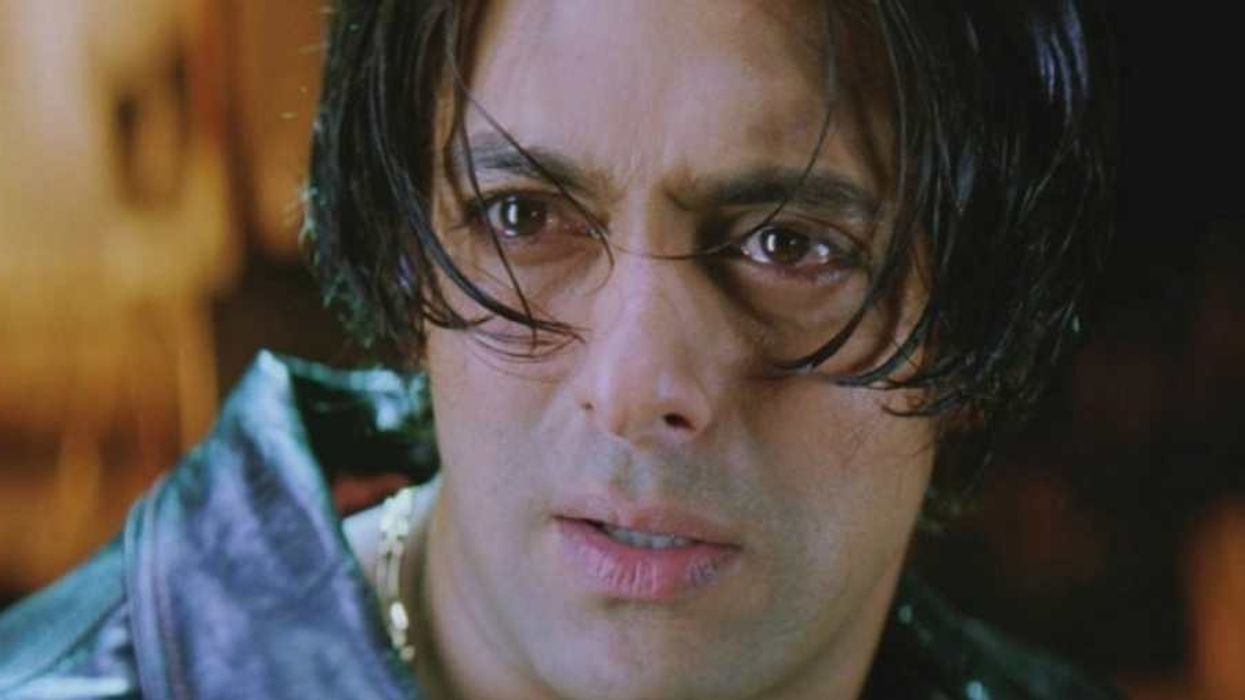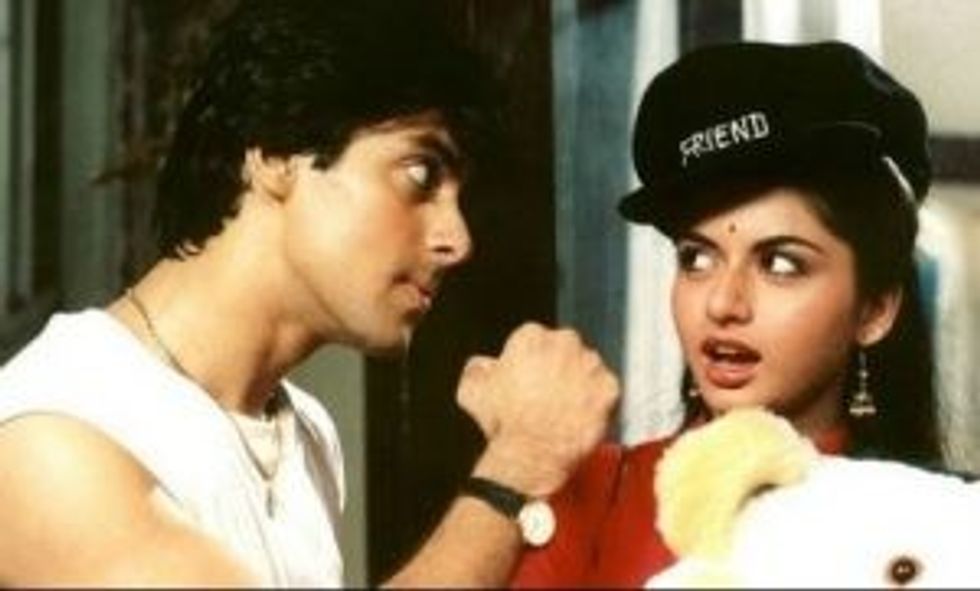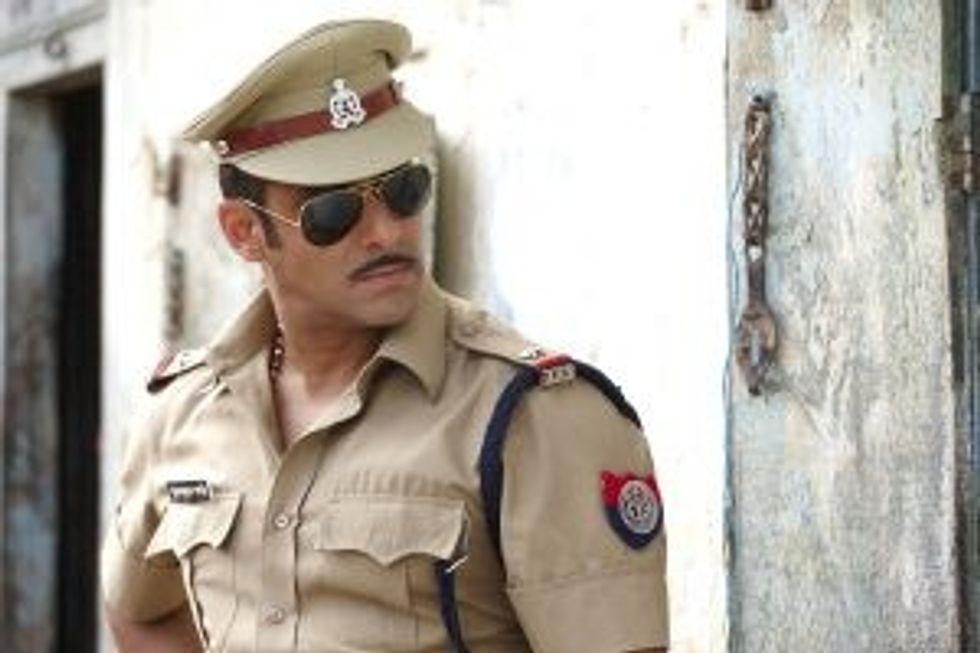HINDI cinema superstar Salman Khan will celebrate his 56th birthday on December 27 and receive a tidal wave of good wishes from around the world.
Born in 1965, the actor has had an extraordinary career and holds the record for the greatest number of Bollywood films that have been highest grossing of the year.
Eastern Eye decided to do the impossible and put together a watchlist of his top 10 movies, which help to sum up his big-screen journey.
Maine Pyar Kiya (1989): After a small supporting role in his debut film Biwi Ho To Aisi (1988), Salman became an overnight superstar with his second film Maine Pyar Kiya. The young love story connected with audiences globally and clocked up huge box office figures, which subsequently resulted in romance being introduced back into Bollywood after nearly two decades dominated by action. The film turned Salman into a pin-up for a new generation and kick-started his amazing journey.
Saajan (1991): The highest grossing Bollywood film of 1991 helped romance hit top gear. The interesting love triangle loosely inspired by French classic Cyrano De Bergerac revolves around a woman in love with a poet who hides his identity, and then mistakes another man for him. The actor stars alongside Madhuri Dixit and Sanjay Dutt in a film filled with love, poetry, and great songs.
Hum Aapke Hain Koun (1994): The actor teamed up with Maine Pyar Kiya director Sooraj Barjatya and Madhuri Dixit for a musical that smashed every record to become the highest grossing Bollywood film in history. The family drama revolves around two individuals falling in love during a big fat Indian wedding. The film became a landmark moment in Hindi cinema history.
Andaz Apna Apna (1994): There have been plenty of occasions where the actor has shown a great comedic flair. Of his hit comedies, including Judwaa (1997), Mujhse Shaadi Karogi (2004) and Partner (2007), this was his funniest. He stars alongside Aamir Khan, Raveena Tandon and Karisma Kapoor in what is widely regarded as one of the greatest Bollywood comedies ever made. The story of two gold-digging guys vying for the attention of a rich heiress is loaded with laughs.
Hum Dil De Chuke Sanam (1999): Salman Khan starred in the three highest grossing Bollywood films of 1999 and this interesting love triangle was the best. The actor starred alongside Aishwarya Rai and Ajay Devgn in what turned out to be a story of two halves. The female protagonist falls for someone in the first half but finds out the real meaning of love when she marries someone else.
Tere Naam (2003): The actor has starred in Bollywood remakes of hit south Indian films and this romantic drama was perhaps the beginning of that strong association. It also has, arguably, one of his career-best performances in the story of a street thug who falls in love and then goes on a painful journey after having his heart broken. He stars opposite Bhumika Chawla in the remake of Tamil film Sethu (1999).
Dabangg (2010): The action-comedy was so popular that it spawned too sequels and gave Salman Khan one of his career defining roles as rule-breaking policeman Chulbul Pandey. The highest grossing film of that year is an escapist action entertainer that contains a little bit of everything, including comedy, action, drama, romance, and a great musical number that had everyone dancing.
Ek Tha Tiger (2012): The highest grossing film of that year kick-started a franchise. The equally good sequel, Tiger Zinda Hai, would clock up the highest numbers in India for that year when it released in 2017. He plays a fearless Indian spy, who is on an important mission and falls for a Pakistani agent, played by Katrina Kaif. There are plenty of eye-catching action set pieces throughout the film and a third instalment is on the way.
Bajrangi Bhaijaan (2015): The biggest blockbuster of 2015 is the story of a Hindu man in India trying to reunite a stranded young Muslim girl with her family in Pakistan. One of the best reviewed films the actor has starred in would win a National Film Award for Best Popular Film Providing Wholesome Entertainment, a Filmfare Award for Best Story, and an IIFA award for Best Film.
Sultan (2016): He stars opposite Anushka Sharma in the story of a wrestler who lets success go to his head and in the process loses everything he loves. Years later, he is a broken man and gets an unexpected chance for redemption. The story set across two time periods would become the first wrestling-based drama to become a blockbuster success and was only beaten by Aamir Khan starrer Dangal, which released later the same year to become the highest grossing Bollywood film in history.







